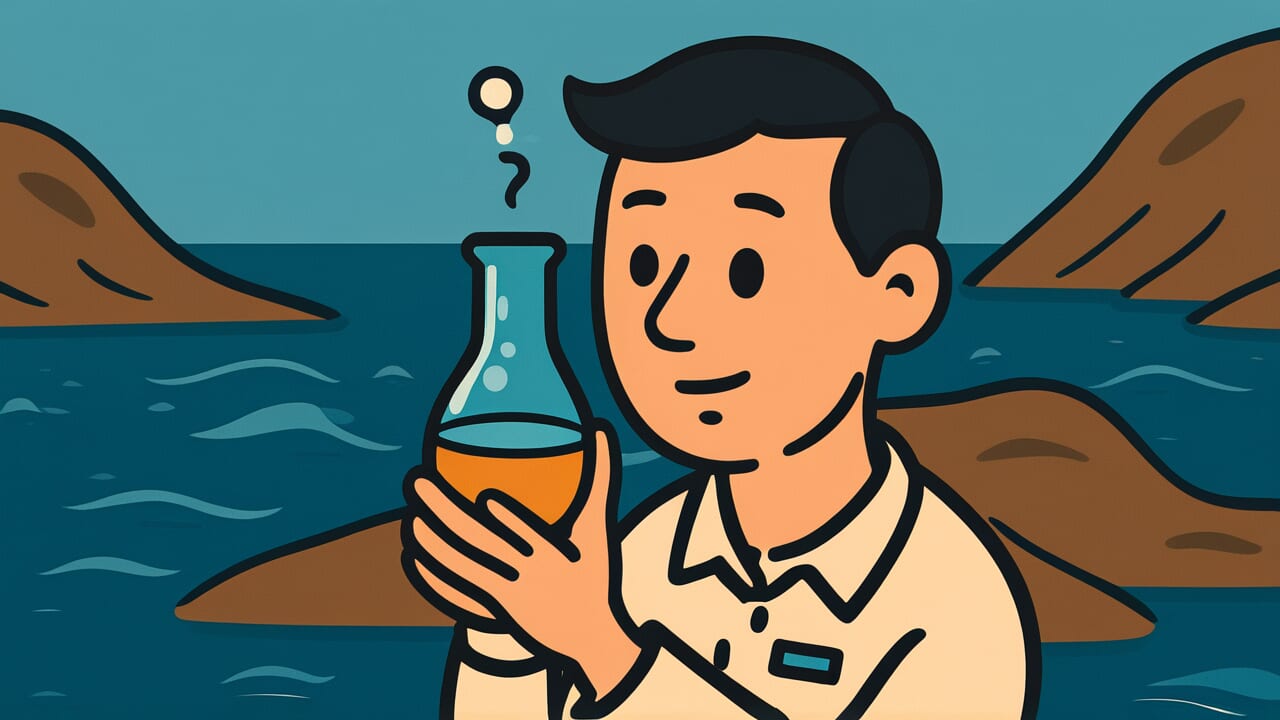How to Read “A drop on the tongue reveals the saltiness of the great ocean”
Itteki zetsujō ni tsūjite, taikai no emmi wo shiru
Meaning of “A drop on the tongue reveals the saltiness of the great ocean”
This proverb means you can understand the whole picture or essence of something from a small experience or limited information.
Just as tasting one drop of seawater tells you the entire ocean is salty, touching just a small part lets you grasp the nature and truth of the whole.
People use this saying when someone makes an accurate judgment from minimal experience. It also applies when praising someone’s insight in seeing the essence with little information.
For example, even when you’ve just started exploring a new field, experiencing one aspect can help you understand the depth and essential characteristics of that entire world.
In modern times, efficient learning and judgment have become increasingly important. We don’t have time to experience everything, so the ability to see the essence matters more than ever.
This proverb teaches us that deep insight, not the quantity of surface information, leads to true understanding.
Origin and Etymology
This proverb is believed to originate from Zen Buddhist philosophy. It expresses the Zen teaching that you can realize universal truth from one small experience.
The phrase “a drop on the tongue” refers to the act of tasting just one drop of seawater on your tongue.
“Reveals the saltiness of the great ocean” means you can understand from that single drop that the entire vast ocean is salty. You don’t need to drink all the ocean’s water—one drop is enough.
In Zen practice, people have long believed that triggers for enlightenment exist in trivial daily events.
The idea is that universal truth dwells in casual actions like drinking tea, cleaning, or walking. This proverb reflects that Zen worldview.
The exact first written source remains unclear. However, scholars believe this expression was used in Zen records and sermons by Zen monks.
The concept of knowing the whole from a part, understanding the macro from the micro, is deeply rooted in Eastern philosophy. This proverb beautifully captures that spirit.
Usage Examples
- She identified the company’s fundamental problems within one week of joining—truly “a drop on the tongue reveals the saltiness of the great ocean.”
- I recognized this band’s talent after hearing just their first song. This is exactly what “a drop on the tongue reveals the saltiness of the great ocean” means.
Universal Wisdom
Humans possess a mysterious ability. It’s the power to imagine and understand the whole picture from just a tiny fragment.
This proverb has been passed down for hundreds of years because this ability represents the essence of human intelligence.
We cannot experience everything in the world during our lifetime. Time is limited, and life is short.
Yet humanity has accumulated wisdom and developed civilization. Why? Because we have the power to learn much from a single experience.
A baby touches something hot once and understands the danger of heat. A traveler visits one town and senses the cultural characteristics of that entire country.
This isn’t mere guessing. It happens because humans intuitively understand a universal law—the whole dwells within the part.
Our ancestors realized this truth. Truth doesn’t exist far away—it already exists in the small realities right before our eyes.
Like sunlight reflecting in a single water droplet, the essence of life is condensed in trivial events.
That’s why careful observation and deep appreciation matter. Don’t live skimming across the surface. Instead, receive each experience with care.
There lies the path to wisdom.
When AI Hears This
You can know the saltiness of all seawater from one drop because seawater is a perfectly mixed, homogeneous system.
In information theory terms, this represents “a state of maximized entropy”—meaning information is completely uniformly distributed.
In this state, any sample taken from anywhere contains the same information as the whole. That’s why one drop suffices.
However, real-world data collection rarely meets this condition. For example, polling 1,000 people is considered sufficient, but only if respondents are randomly selected without bias.
If the sample is biased toward specific regions or age groups, even 10,000 responses won’t yield accurate results. It’s not a question of sample size—it’s a question of system homogeneity.
The same principle operates in machine learning. If training data is biased, increasing data volume won’t improve accuracy.
Rather, a small amount of high-quality data that represents the whole proves more effective.
The ocean teaches us a paradox of the big data era. Before collecting massive amounts of data, we should ask whether that data truly represents the whole.
Is the system sufficiently mixed? Whether one drop suffices or a million drops are needed isn’t determined by quantity—it’s determined by homogeneity.
Lessons for Today
Modern society overflows with information. Open social media and countless posts stream by. News sites publish thousands of articles daily.
In such an era, the wisdom this proverb teaches shines even brighter.
What matters is not the quantity of information, but its quality. Rather than living by skimming the surface trying to know everything, cultivate the power to deeply savor one experience and see its essence.
When you start a new job, observations during the first week become the key to understanding that organization’s culture.
When you meet someone, that person’s essence appears in your first conversation.
What you need is the courage to stop and savor. Instead of rushing from one thing to the next, try concentrating on this moment’s experience.
Read one book deeply. Learn one skill thoroughly. Engage seriously with one person.
Such careful attitudes cultivate your eye for seeing the essence of things.
The power to know the great ocean from one drop of seawater isn’t an inborn talent.
Cherishing daily experiences and maintaining an attitude of learning from them sharpens your insight.



Comments